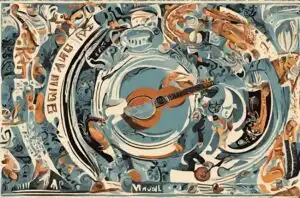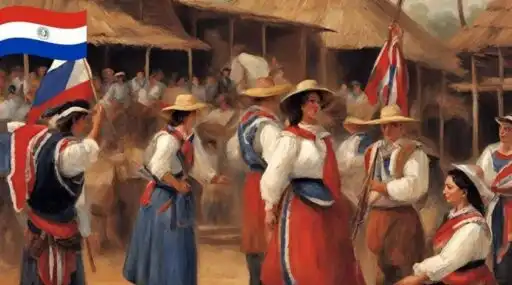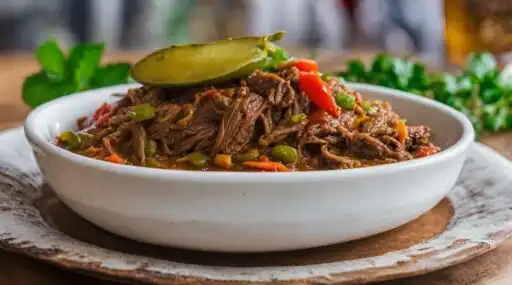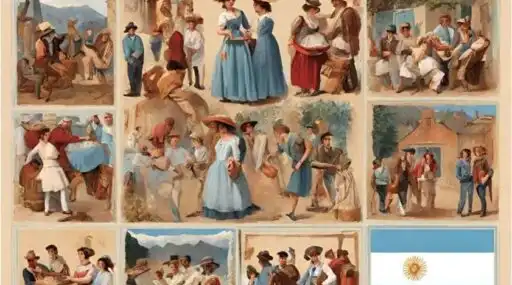Jaime Roos, born on November 12, 1953, in Montevideo, Uruguay, is a legendary figure in the Latin American music scene. With a career spanning over four decades, Roos has established himself as one of Uruguay’s most iconic and influential musicians, known for his eclectic style, poetic lyrics, and captivating melodies. This comprehensive exploration of Jaime Roos’ discography will trace his musical evolution, highlighting key albums and compositions that have left an indelible mark on Uruguay’s cultural landscape.
Early Years and Los Shakers:
Jaime Roos’ musical journey began in the 1960s, a period of cultural upheaval and experimentation in Uruguay. Inspired by the British Invasion sound of bands like The Beatles and The Rolling Stones, Roos co-founded the legendary Uruguayan rock band Los Shakers. Alongside fellow musicians like Hugo Fattoruso and Osvaldo Fattoruso, Roos helped to pioneer the Uruguayan rock movement, blending rock and roll with traditional Latin American rhythms to create a unique and distinctive sound. Los Shakers’ self-titled debut album, released in 1965, featured hit songs like “Break It All” and “Never, Never,” earning the band widespread acclaim and establishing Roos as a rising star in the Uruguayan music scene.
“Candombe, Murga y Rock”:
In the early 1970s, Jaime Roos embarked on a solo career, exploring his country’s rich musical heritage and incorporating elements of candombe, murga, and rock into his music. His debut solo album, “Candombe, Murga y Rock” (1977), showcased Roos’ innovative approach to songwriting and composition, featuring a diverse range of styles and influences. Tracks like “Adiós Juventud” and “El Futbol” captured the spirit of Uruguay’s vibrant street culture, while Roos’ introspective lyrics explored themes of love, identity, and social justice. With its infectious rhythms and heartfelt melodies, “Candombe, Murga y Rock” established Roos as a leading voice in the Latin American music scene, earning him a devoted fan base and critical acclaim.
“Siempre Son las Cuatro”:
Following the success of his debut album, Jaime Roos released “Siempre Son las Cuatro” (1982), a groundbreaking work that further solidified his reputation as a visionary artist. The album featured a blend of traditional Uruguayan rhythms, such as candombe and murga, with elements of jazz, funk, and rock, creating a sound that was both innovative and timeless. Tracks like “Brindis por Pierrot” and “La Margarita” showcased Roos’ virtuosity as a composer and performer, while his evocative lyrics explored the complexities of life in Uruguay’s urban landscape. “Siempre Son las Cuatro” became a landmark album in Uruguayan music history, influencing a generation of musicians and earning Roos a place among Latin America’s musical elite.
“Mediocampo”:
In 1984, Jaime Roos released “Mediocampo,” a concept album inspired by the landscapes and rhythms of Uruguay’s countryside. The album featured a series of instrumental pieces that captured the beauty and tranquility of rural life, with Roos’ evocative melodies painting a vivid portrait of the Uruguayan countryside. Tracks like “Rural” and “El Grito del Canilla” showcased Roos’ mastery of mood and atmosphere, transporting listeners to a world of quiet contemplation and natural beauty. “Mediocampo” received widespread praise from critics and audiences alike, solidifying Roos’ reputation as a visionary composer and musician.
“Estamos Rodeados”:
In 1985, Jaime Roos released “Estamos Rodeados,” a politically charged album that addressed the social and political issues facing Uruguay at the time. The album featured a mix of rock, reggae, and Latin rhythms, with Roos’ biting lyrics critiquing government corruption, economic inequality, and social injustice. Tracks like “Los Olímpicos” and “Amapola” captured the frustration and disillusionment of Uruguay’s youth, while Roos’ impassioned vocals gave voice to a generation struggling to make sense of a rapidly changing world. “Estamos Rodeados” was a critical and commercial success, cementing Roos’ reputation as a fearless artist unafraid to tackle difficult subjects.
“Aniversario”:
In 1993, Jaime Roos celebrated the 20th anniversary of his music career with the release of “Aniversario,” a retrospective album that featured re-recorded versions of his most iconic songs. The album showcased Roos’ evolution as an artist, with updated arrangements and production techniques breathing new life into classic tracks like “Si Me Voy Antes Que Vos” and “Brindis por Pierrot.” “Aniversario” was a fitting tribute to Roos’ contributions to Uruguayan music, serving as a reminder of his enduring legacy and continued relevance in the Latin American music scene.
Later Years and Legacy:
In the years following “Aniversario,” Jaime Roos continued to release albums and perform live, captivating audiences with his soulful vocals and mesmerizing stage presence. His music remained a staple of Uruguayan radio and television, with songs like “Amándote” and “Cometa de la Farola” becoming enduring classics. Roos’ influence extended beyond his own recordings, with his innovative blend of rock, folk, and Latin rhythms inspiring a new generation of musicians in Uruguay and beyond.
Today, Jaime Roos is regarded as a national treasure in Uruguay, celebrated for his contributions to the country’s cultural heritage and his unwavering commitment to artistic excellence. His discography stands as a testament to his boundless creativity, musical versatility, and profound understanding of the human experience. From his early days with Los Shakers to his later solo work, Roos’ music continues to captivate and inspire audiences, ensuring that his legacy will endure for generations to come.









































Leave a Reply